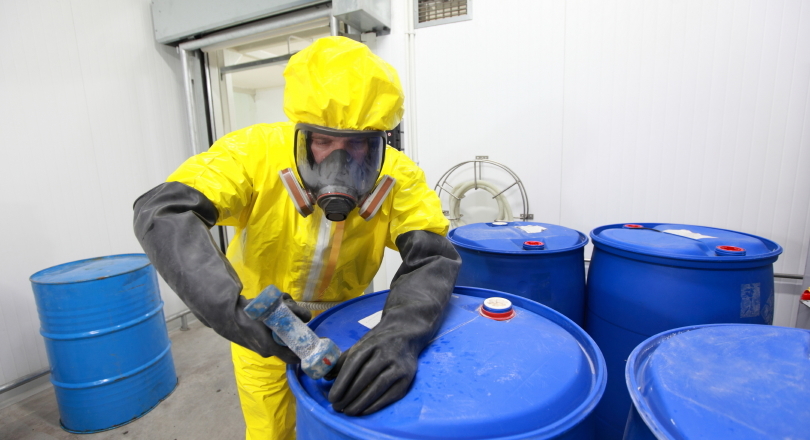The Chemicals Regulation Division (CRD) of the HSE provides regulation of biocides, pesticides and chemicals being used in the UK. Alongside the German regulator, it is one of the largest and leading chemical regulators in Europe.
One of its main remits is to ensure that any negative effects of chemicals being used in farming, pharmaceuticals and other industries are minimised on people and the environment.
Chemicals are currently regulated under a range of different EU regulations concerning; the classification; labelling and packaging; the registration; evaluation; approval authorisation; and restriction of chemicals, including biocides.
The lack of certainty about Brexit talks is already creating large challenges for the UK regulator.
The division, which is part of the Health and Safety Executive, has been preparing for a no-deal Brexit:
- As part of its planning the division is supporting Defra on developing an IT system for the REACH regime in case of a no-deal Brexit scenario. The system would be used to ensure that companies can continue to register chemicals in the UK. However, the system is an insurance policy at a considerable cost to the UK taxpayer and government as it might never need to be used. It would not be used if the UK is unable to become an active participant (without voting rights) of the European Chemicals Agency (ECHA).
- Plans for a biocide IT system are yet to be confirmed. Biocides come under a separate IT system to REACH. It is unclear if the UK will continue to have access to this resource
- The division is also using considerable resources by prompting the creation of a list of unacceptable chemicals within the pesticide regime which would need to be agreed at EU level and then transposed into UK Law by the Withdrawal Act. A vote on this list is expected to happen within the coming months. However, if this delayed or not passed for any reason and cannot be agreed upon, or in the event of a “hard Brexit or no deal” then only legislation already agreed and in place before the date of withdrawal will apply in the UK.
Even, if the UK was to negotiate a limited participation with the EU:
- Access to IT systems would be limited and as a non-EU member there could be a fee for using the system.
- The UK could be frozen out of discussions and advice for other European regulators while they are considering new chemicals.
- Despite having access to the systems - the HSE CRD would likely not be allowed to veto new chemicals entering the UK, as it can today.
Prospect senior deputy general secretary Sue Ferns said:
“The UK is currently a leading authority in the chemicals sector and runs the risk of losing its voice in a crucial area.
“Our members’ livelihoods are at risk if the UK does not negotiate as full an agreement as possible that maintains the UK’s voice in the ECHA.
“There could also be a wider impact on UK companies producing chemical and biocide products as they may not be able to import what they need to produce products. In turn this could lead to products such as cleaning products, pest control and preservation not being as easily available for UK consumers.”

